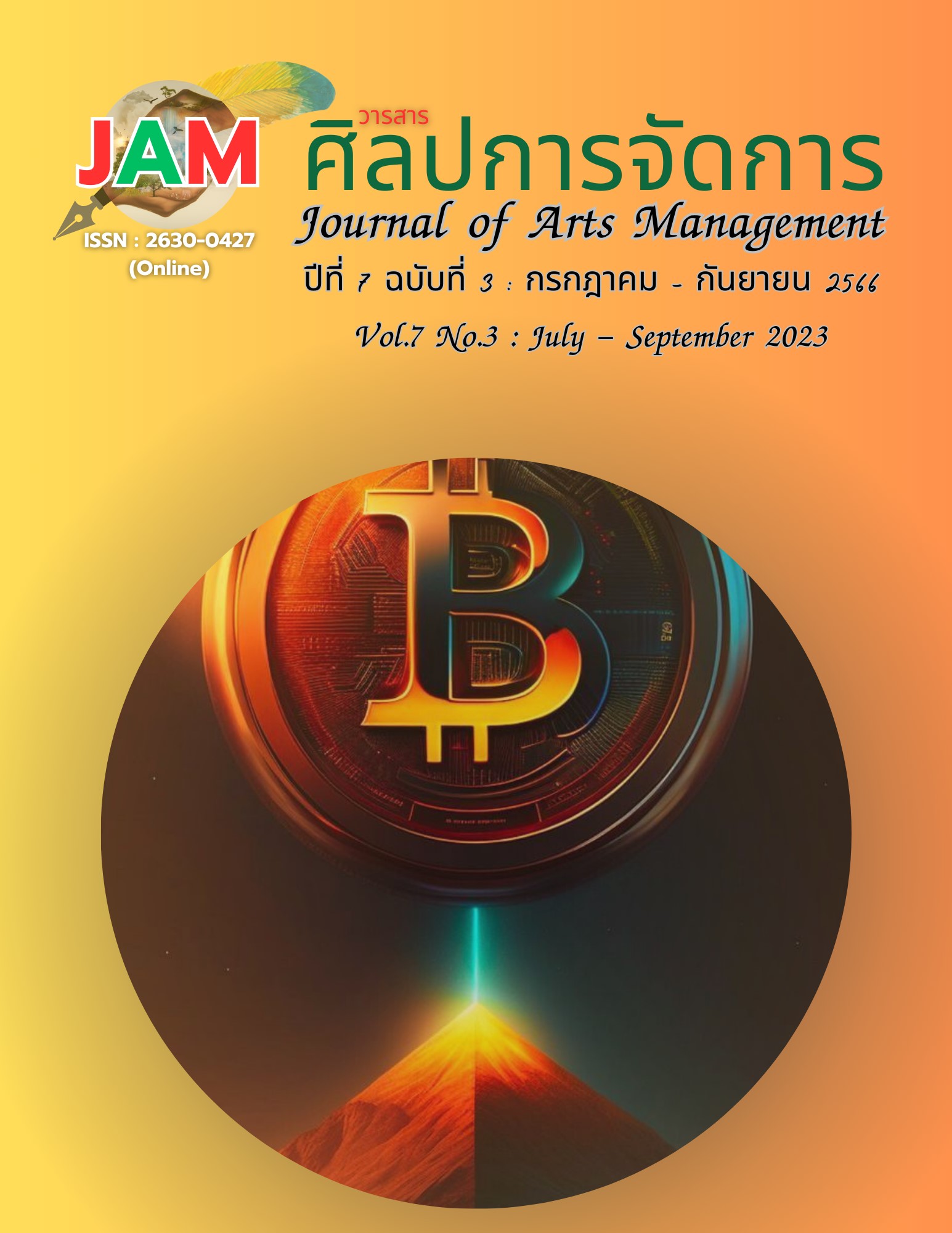Human Resource Development to Increase the Competency of Competition in the Eastern Special Development Zone EEC
Main Article Content
Abstract
This research aims to: 1) study the policy and guidelines for personnel skill development according to the EEC Model guidelines. 2) Study the problems and obstacles in personnel skill development according to the EEC Model guidelines. 3) Study the guidelines in "Human Resource Development to Increase Competitiveness in the Eastern Special Development Zone EEC "by using qualitative research methods. The interview form and in-depth interviews with selected samples by the purposive method were used as tools for data collection. The results were divided into three groups. The obtained data is analyzed by classification, interpretation, and description. 1) For human resource development to increase the competency of the competition, one must develop the skills to learn. And we are still unable to produce personnel with knowledge, skills, and characteristics that meet the needs of the target industries. It must be continuously developed in terms of knowledge and ability. 2) The EEC Model Type A is considered an implementation guideline for a human resource development guideline that educational institutes, both vocational and higher education, must adhere to as the main guideline for the production of the country's labor force, and the operational guidelines according to the EEC Model Type B are manpower development guidelines that are suitable for establishments in an urgent situation because they answer the question of preparing the manpower for the establishment and it doesn't take a long time. 3) Guidelines for “Human Resource Development To increase the ability to compete in the Eastern Special Development Zone (EEC), show that strong development is like a cost to a country. As the world changes, organizations must adapt to keep up with the changing trends that occur. Personnel development is another factor that helps drive the organization towards its goals successfully.
Article Details

This work is licensed under a Creative Commons Attribution-NonCommercial-NoDerivatives 4.0 International License.
Views and opinions appearing in articles in the Journal of Arts of Management It is the responsibility of the author of the article. and does not constitute the view and responsibility of the editorial team I agree that the article is copyright of the Arts and Management Journal.
References
Buapliansee, N. (2018). Personnel Development Model in the Eastern Economic Corridor to Support Future Target Industries. Journal of Suvarnabhumi Institute of Technology, 4(1), 303-315.
Chantavanich, S. (2013). Qualitative Research Methods. Chulalongkorn University.
HREX.asia. (2019, April 23). Human Resource Development: HRD. https://th.hrnote.asia/orgdevelopment/190423-human-resource-development/
Jangruxsakul, S., & Athikulrat, K. (2023). Evaluation of Labor Skill Development Projects in the Eastern Economic Corridor (EEC) by Using CIPP Model. Journal of Business Administration Maejo University, 5(1), 1-20. https://so05.tci-thaijo.org/index.php/MJBA/article/view/261365/178801
Komanee, S. (2022). Potential Development of the Workforce on Soft Skills. Journal of Education Burapha University, 33(1), 117-145. https://so02.tci-thaijo.org/index.php/edubuu/article/view/256081/172114
Limrueangrong, P., & Thaweepaiboonwong, J. (2022). The Influence of Human Resource Development on Employees Performance: The Mediating Role of Competency. Srinakharinwirot Research and Development (Journal of Humanities and Social Sciences), 14(27), 75-86. https://ejournals.swu.ac.th/index.php/swurd/article/view/14487
Office of the National Economic and Social Development Council (NESDC). (2019, Oct 25). National Strategy 2018-2037. http://nscr.nesdc.go.th/wp-content/uploads/2019/10/National-Strategy-Eng-Final-25-OCT-2019.pdf
Sergi, B.S., Ključnikov, A., Popkova, E. G., Bogoviz, A. V., & Lobova, S.V. (2022). Creative Abilities and Digital Competencies to Transitioning to Business 4.0. Journal of Business Research, Elsevier, 153(C), 401-411. https://doi.org/10.1016/j.jbusres.2022.08.026
Suplai, N., & Hengsadeekul, W. (2019). The Relationship of Human Resource Management with the Effectiveness of Job Performance and Loyalty of Employees in Operational Level, Real Estate Business in Samutsakorn Province. SAU Journal of Social Sciences and Humanities, 3(1), 89-109. https://so05.tci-thaijo.org/index.php/saujournalssh/article/view/217031


